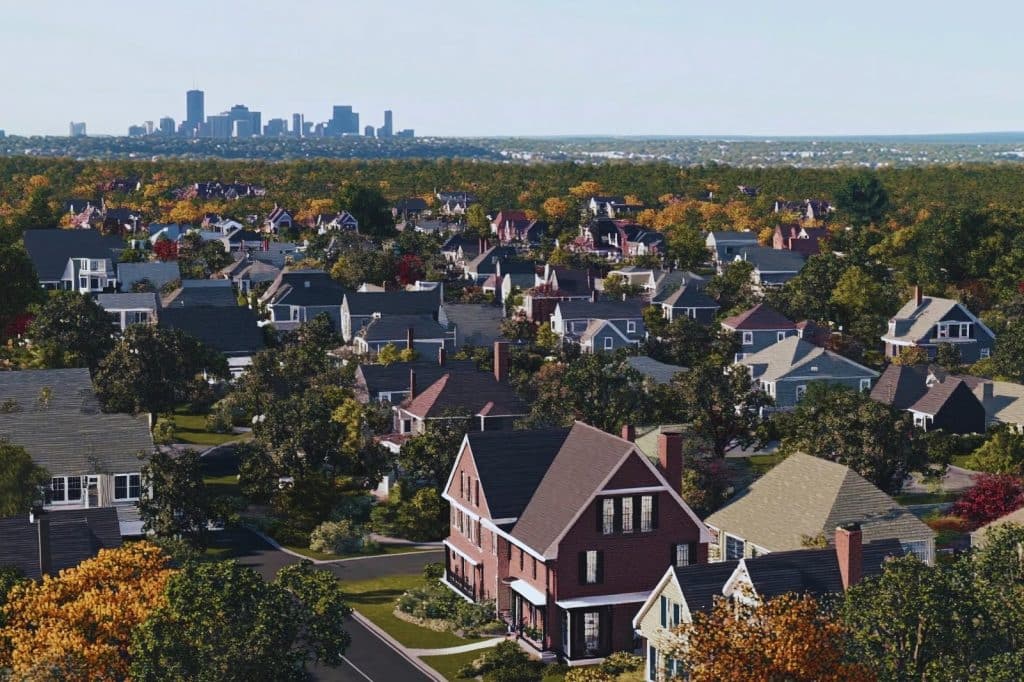- 🏙️ Springfield, MA, has become the No. 1 hottest housing market, marking its first top position in seven years due to high demand and limited inventory.
- 📈 Homes in Springfield see triple the national average in views per listing and sell faster than others, averaging 37 days on the market.
- 🏡 Proximity to Boston is a strong factor for hot markets, with regions nearby benefiting from Boston’s educational and job opportunities.
- 💼 Flexible work arrangements are fostering real estate demand in areas surrounding Boston, as it attracts remote or hybrid workers.
- 🧭 For 14 months, the list of hottest markets has been dominated by the Northeast and Midwest, highlighting affordability and job opportunities.
- 🏘️ Home price increases in the hottest markets are counter to national trends, with some areas like Lafayette and Rockford seeing double-digit growth.
- 🏠 Despite increased housing stock, the hottest markets face significant inventory constraints, fueling competition and price growth.
- 📉 Markets like Rochester and southern cities such as Nashville and Tampa have dropped in popularity due to affordability concerns.
- 🔮 The 2025 housing outlook suggests potential demand rise with expected mortgage rate declines, although some markets may stabilize due to improved affordability.
In a surprising turn of events, Springfield, Massachusetts, has claimed the No. 1 spot on the Hottest Housing Markets list for the first time in seven years. This achievement is the result of several converging factors, including skyrocketing demand, limited inventory, and regional influences that have set Springfield apart from other contenders. In this blog post, we explore why Springfield has surged to the top, how its proximity to Boston plays a role, and the overarching trends shaping the housing market in the Northeast and Midwest.
Why Springfield, MA, is the Hottest Housing Market
For Springfield, staying consistently in the top 20 housing markets for three consecutive years is no small feat. The city’s ascent to the number one position is a testament to its robust demand amidst a scarcity of housing stock. Springfield homes are drawing nearly triple the average national views per listing and have a speedy turnover, selling in just 37 days compared to the national average of 62 days. This combination of allure and rapid sales has solidified Springfield’s place as a magnet for buyers.
Proximity to Boston: A Key Driver
A pivotal factor in Springfield’s housing success story is its proximity to Boston, a city renowned for its educational institutions and burgeoning tech and research sectors. This geographical advantage is significant, as Boston’s high-skilled job market attracts a wave of professionals looking for housing in more affordable, nearby locations. Springfield, at a comfortable distance from the city, provides a viable option for those capitalizing on the flexibility of remote or hybrid work arrangements increasingly advertised in the Boston area.
Trends in the Northeastern and Midwestern Housing Markets
For over a year, Northeast and Midwest markets have consistently monopolized the lists of hottest housing markets. Several core reasons underscore this enduring trend:
- Affordability: Housing in these regions tends to be more pocket-friendly compared to larger metropolitan areas.
- Job Opportunities and Economic Influences: The Northeast’s relatively compact geography facilitates cross-metro employment, enhancing economic fluidity and job prospects.
- Inventory Constraints: Even as housing stock has grown in certain areas, the inventory remains tight enough to fuel fierce competition and drive up prices.
Housing Price Trends
Interestingly, while the national trend saw an overall dip in housing prices, hot markets like those in Lafayette, IN, and Rockford, IL, have defied this pattern with significant price hikes. In Springfield, home prices have risen by 4.3% year over year. This price trajectory speaks volumes about the economic dynamism and buyer interest in these regions.
Springfield’s Future in Housing Markets
Looking ahead to 2025, market predictions suggest that declining mortgage rates may ignite an uptick in housing demand across the country. While Springfield and similarly hot markets might continue thriving under such conditions, the broader rise in affordability could shake up existing buyer dynamics and stabilize less active markets.
Conclusion
Springfield, MA, has rightly earned its spot as the hottest housing market in 2024, backed by factors like strategic proximity to Boston, buyer interest, and limited housing supplies. As we anticipate further developments in the housing market landscape, understanding the intricate web of economic and regional factors that catapult a city like Springfield to prominence can offer valuable insights for investors, homebuyers, and policymakers alike.






